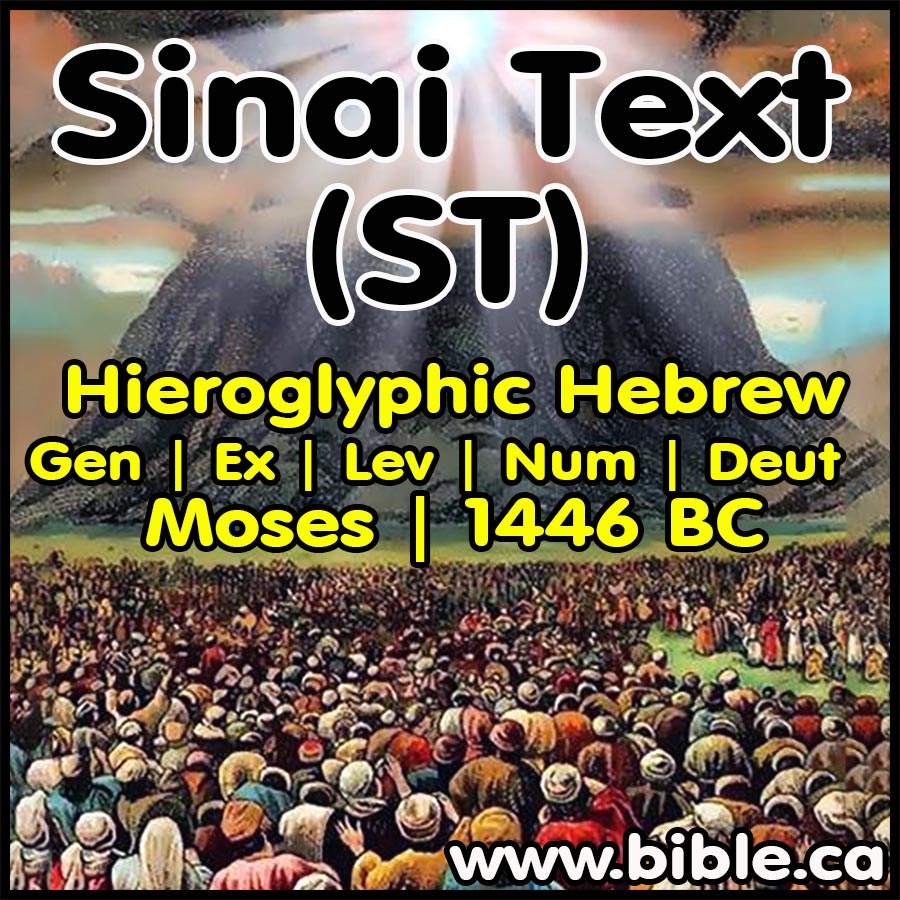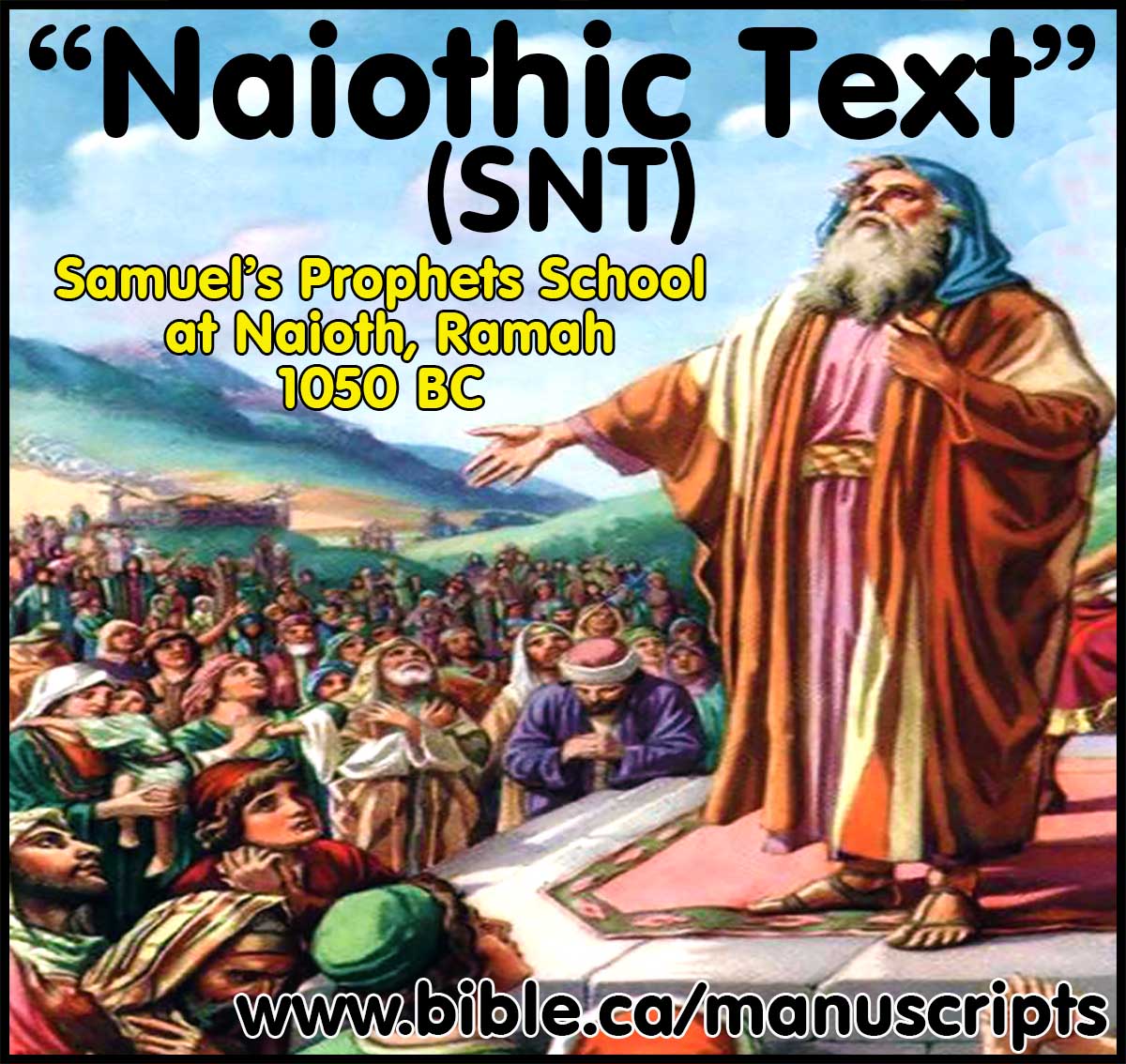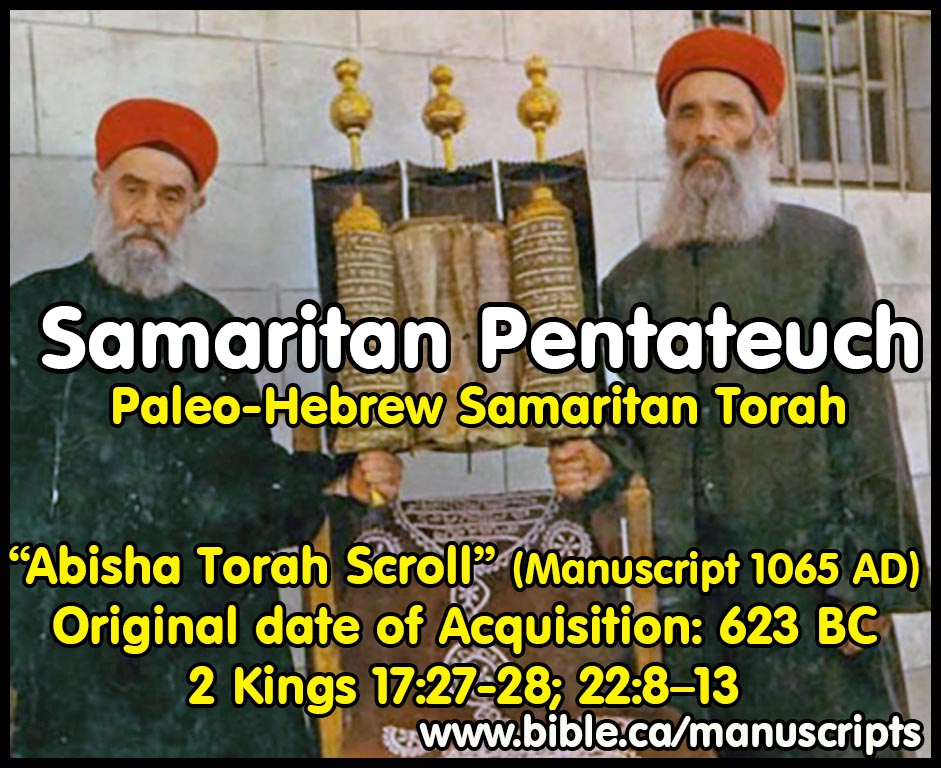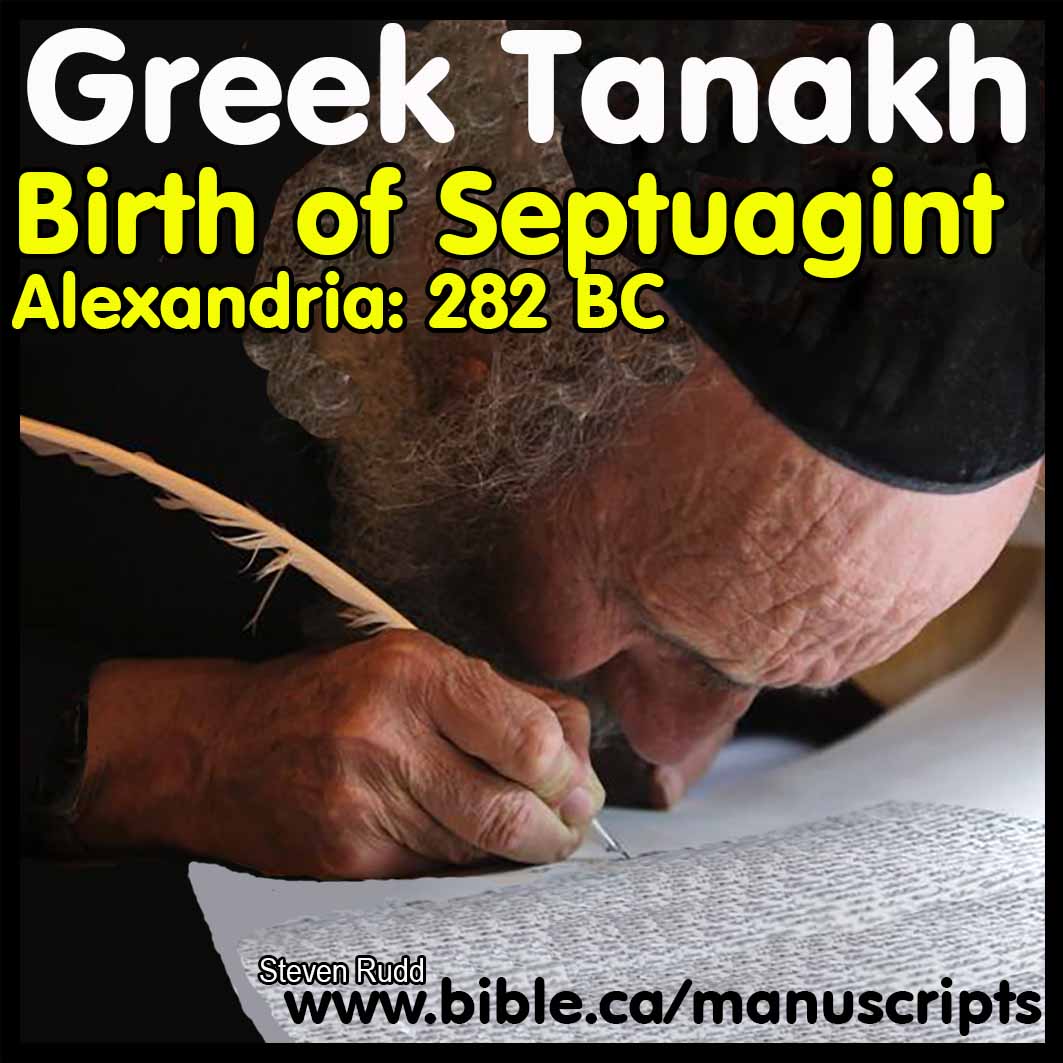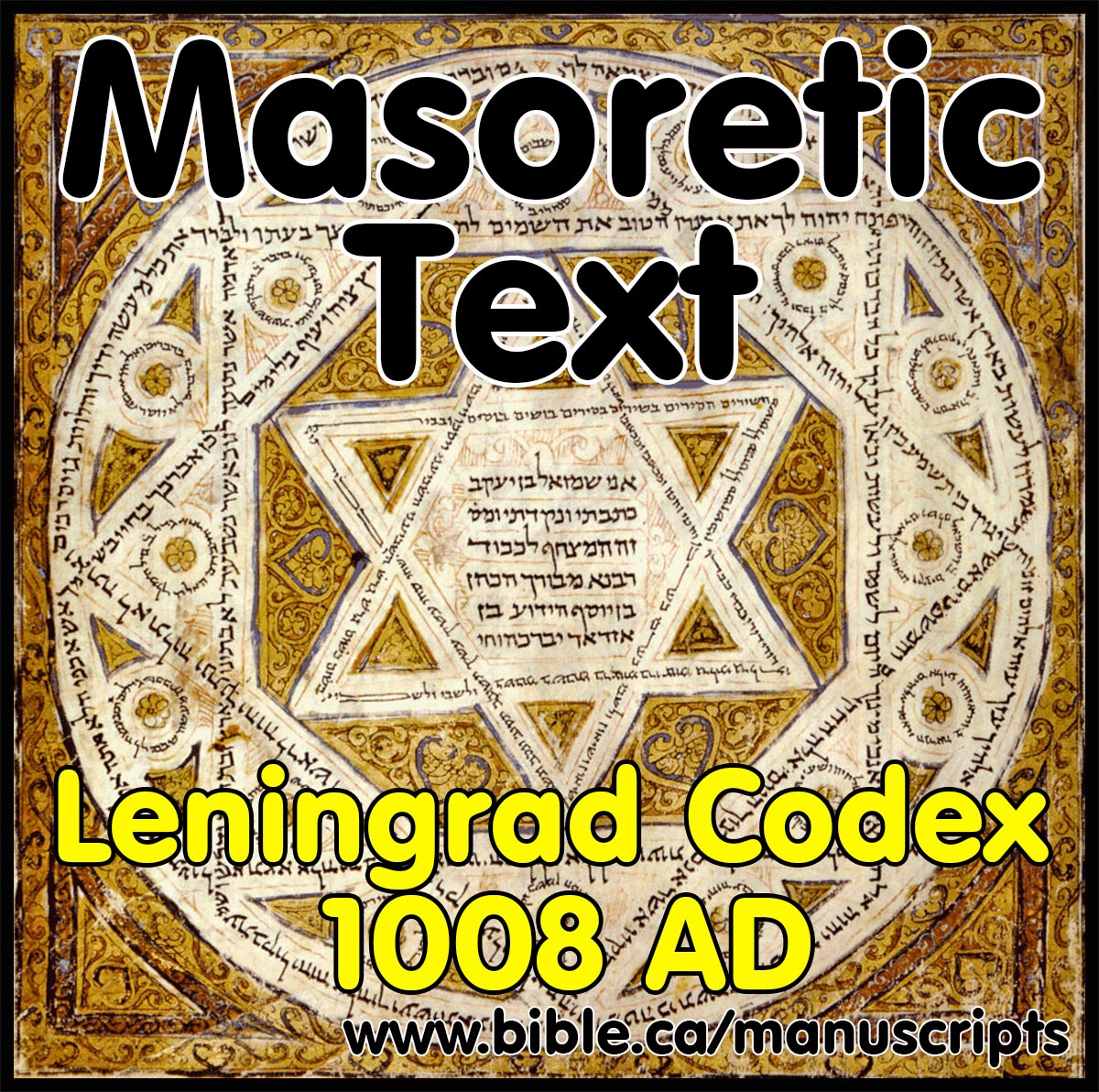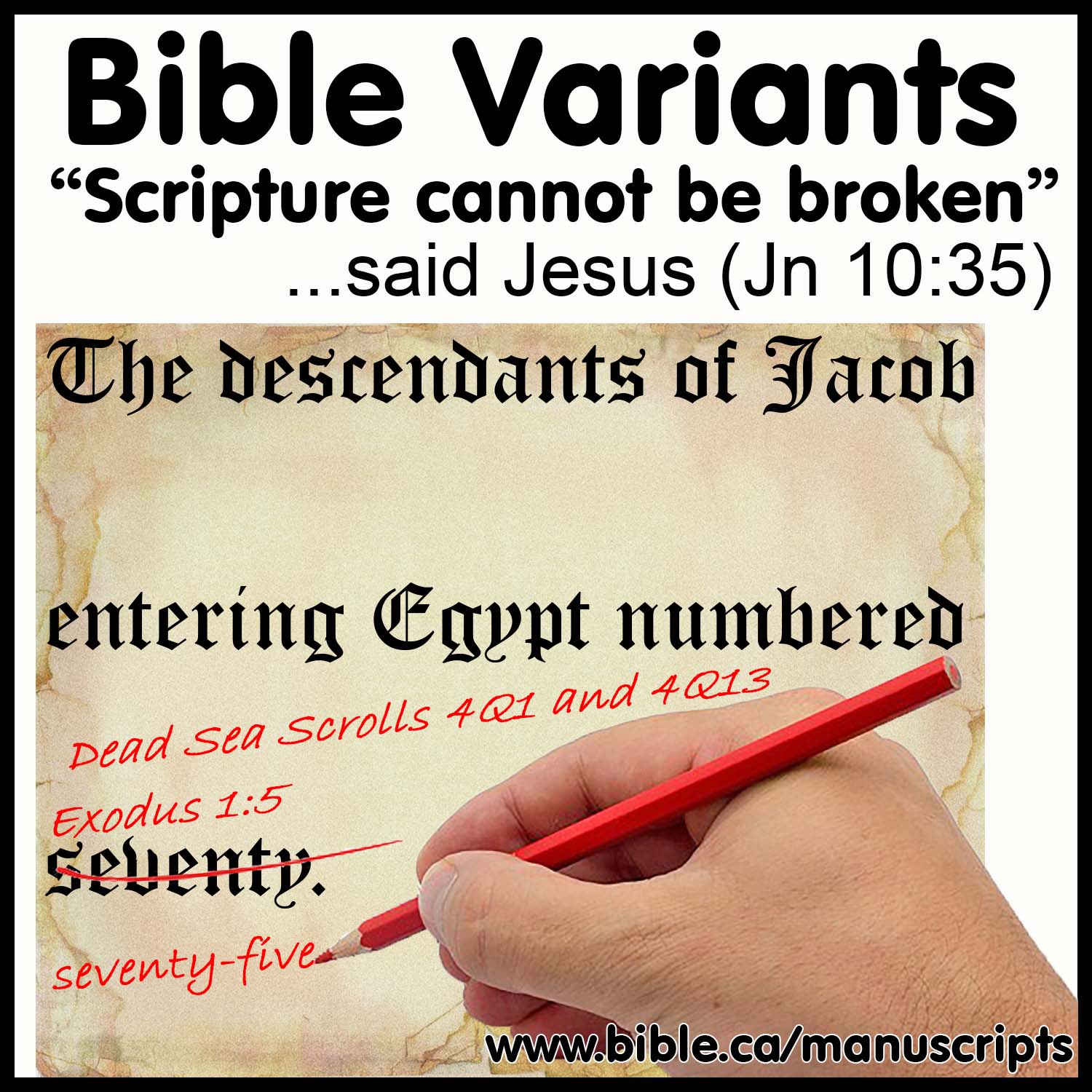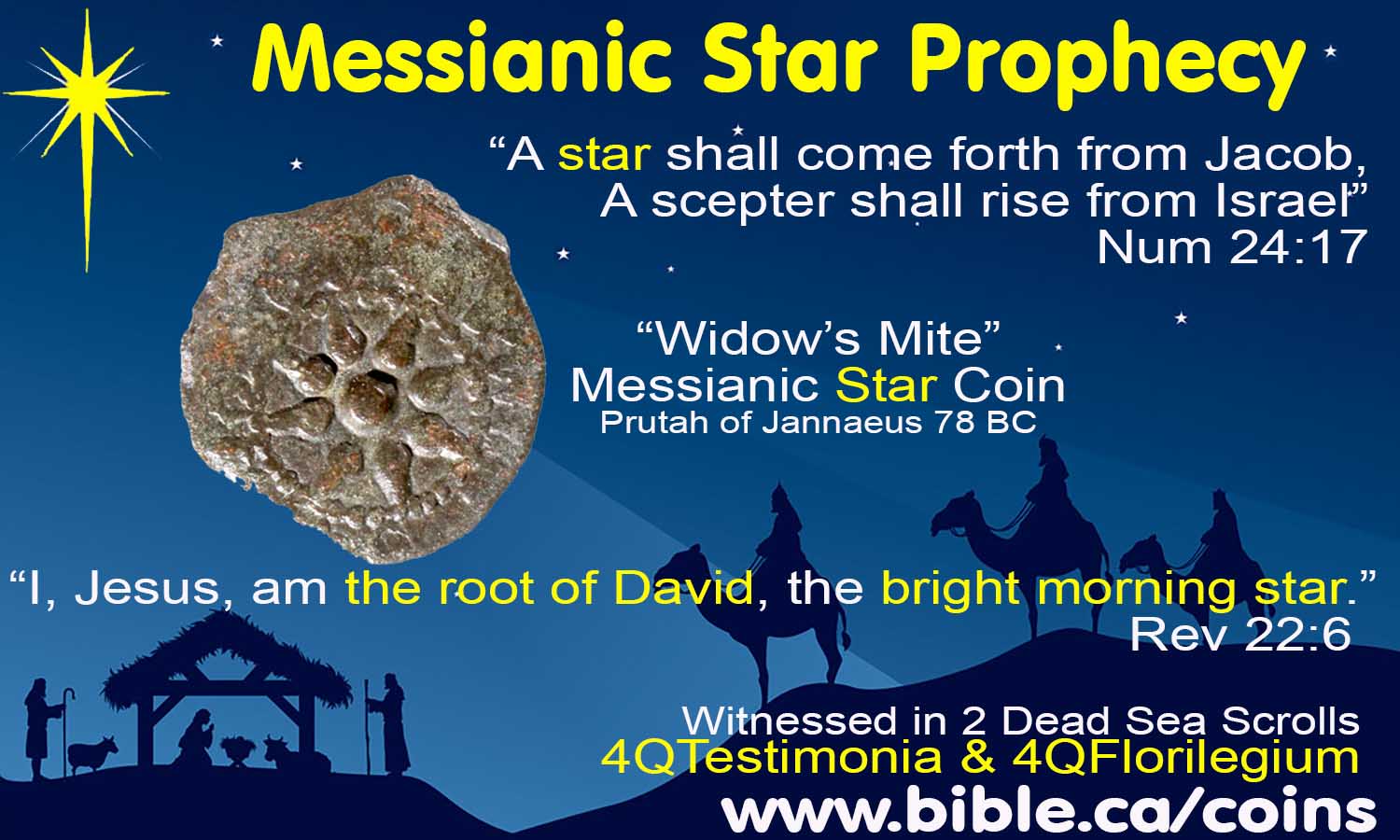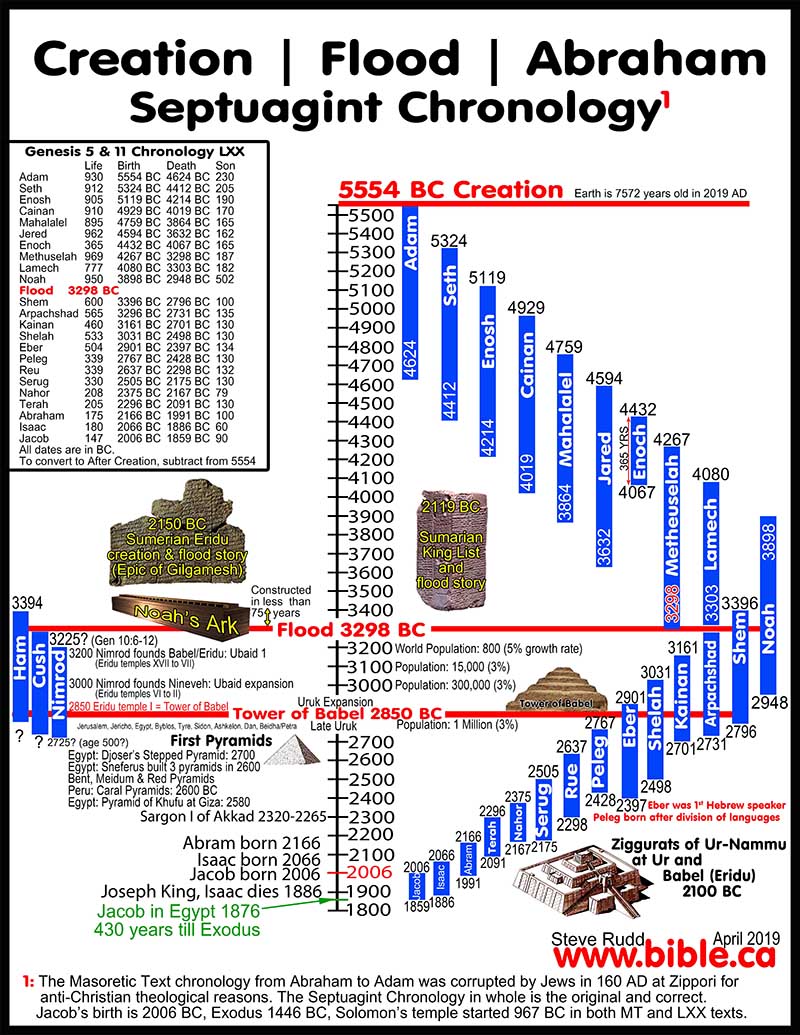Samaritan Chronicle: The Book of Joshua
1362 AD
Creation date: 4263 BC
1. Although the oldest extant manuscript for the Samaritan Chronicle of the book of Joshua dates to 1362 AD, its origin is likely much older.
a. Keep in mind that the oldest manuscript for the Jewish Masoretic text is 1008 AD.
b. The oldest manuscript of the Samaritan Pentateuch (SP) is 1065 AD.
c. So this Samaritan Chronicle could date back thousands of years earlier.
2. The Samaritans reject all other Jewish books except for the first five books of Moses.
a. The Samaritan Chronicle, book of Joshua is their own version of history.
b. The Samaritan version of history is different than the true history from the real book of Joshua.
3. The creation date in the Samaritan Chronicle, book of Joshua is 4263 BC
a. This date closely follows the lower numbers in the Samaritan Pentateuch that has a creation date of 4475 BC
b. The Masoretic creation date: 4174 BC
c. The chronological creation date for the Samaritan Chronicle, book of Joshua Is an exact match to the Samaritan Pentateuch (Torah) with a difference of 3 years when you keep in mind that they took the incorrect “short sojourn” of 215 years rather than a full 430.
d. The 215 variance for the length of time Israel spent in Egypt is a theological interpretation difference not a textual.
e. While the correct calculation of the age of the earth for the Samaritan Pentateuch is 4475, when you reduce the number by 215 years you arrive at 4475-215 = 4260 BC which is only 3 year less than the 4263 BC creation date for the Joshua Samaritan Chronicle.
f. So the Joshua Chronicle replicates the creation date in the SP.
I. About the Samaritan Joshua Chronicle:
a. While the oldest manuscript of the Samaritan Joshua Chronicle (SJ) is 1362 AD, it surely is a copy of a much older manuscript tradition.
b. Keep in mind that the oldest copy of the Samaritan Pentateuch is 1065 AD, and the Masoretic text underlying all modern Old Testaments in the bible dates to 1008 AD.
c. The Samaritan book of Joshua (SJ) is a wonderful, if uneven and eclectic, collection of stories in the form of a chronicle that reaches back to the time of Moses and continues through to the Roman occupation of Palestine and the career of Baba Rabba. Its fifty chapters present the story of the Samaritans, beginning with God’s blessing upon the Israelite nation at the time of the conquest of Canaan, continuing through the early kings (biblical judges) and the period of divine favor, moving to the Israelite religious infidelity and the removal of divine favor, and finally concluding with the beginning of divine disfavor under the conquests by Nebuchadnezzar, Alexander, and the Romans. The stories recount episodes of heroism, betrayal, and supernatural and magical wonders and include songs of praise and portrayals of utter despair, all effectively presenting Samaritan values and a sense of Samaritan self identity. It is not an overexaggeration to say that the SJ presents a community memory and, as such, articulates a description of what it means to be Samaritan. The early chapters of the book read much like targumaic writings, steeped in the pentateuchal texts. Later chapters reflect traditions similar to those found in Josephus’s Antiquities. And on several occasions at least, the SJ brings to mind apocryphal and New Testament texts both in its content and in its style.” (Tradition Kept: The Literature of the Samaritans, R. Anderson, Giles, p49, 2005 AD)
d. Joseph J. Scaliger first brought the sj to the attention of the West in 1584. He obtained a manuscript of the work from the Samaritan community in Cairo and brought it to Europe, where the manuscript eventually made its way to the University Library of Leiden. For many years, this manuscript (itself a composite, with part dating from 1362 and part from 1513) was the only copy of the sj available in Europe.1 In the middle of the nineteenth century, several other manuscripts were obtained; one became resident in the British National Library, and one in the library of Trinity College in Cambridge.” (Tradition Kept: The Literature of the Samaritans, R. Anderson, Giles, p50, 2005 AD)
II. Text of the Samaritan Chronicle, book of Joshua, Chapter 46
“The whole number of the years from Adam up to the time of King Alexander was 3930 years. [MT = 3841 years: 4174 BC - 333 BC] And when Alexander undertook the war against Darius the Persian, he saw in his sleep an angel descending from heaven in the form of an imam and clad in his robes, who said unto him: “Fear not, O hero, you shall conquer Persia; for I am about to deliver him (Darius) into your hand: behold God is with you.” So he (Alexander) attacked him (Darius) and killed him.” (Samaritan Chronicle, book of Joshua, Chapter 46)
III. Chronological calculations from the Samaritan Joshua Chronicle, chapter 46:
1. Adam to Alexander the great (333 BC): 3930 years
2. Creation date of Samaritan Joshua Chronicle: 3930 + 333 = 4263 BC
3. Samaritan Pentateuch creation date long sojourn: 4475 BC
4. Samaritan Pentateuch creation date short sojourn: 4260 BC (the Samaritans used the short sojourn)
5. Masoretic creation date: 4174 BC
6. Septuagint creation date: 5554 BC
7. Samaritan Pentateuch creation dates: 4260 BC
8. Samaritan Joshua Chronicle creation date: 4263 BC
Conclusion:
1. The age of the earth in the Samaritan Chronicle of the book of Joshua (SJ) is identical (within 3 years) of the SP if you use the short 215 sojourn for Israel in Egypt.
2. The Samaritan Chronicle of the book of Joshua (SJ) does not provide us with any valuable information about the origin of the chronology used in the SP for the age of the earth.
3. The 14th century AD manuscript of the SJ is likely a copy of a much older document, but we have no way of projecting it for certain back to the first century.
|
The Septuagint LXX “Scripture Cannot Be Broken” |
|||||
|
Start Here: Master Introduction and Index |
|||||
|
Six Bible Manuscripts |
|||||
|
1446 BC Sinai Text (ST) |
1050 BC Samuel’s Text (SNT) |
623 BC Samaritan (SP) |
458 BC Ezra’s Text (XIV) |
282 BC Septuagint (LXX) |
160 AD Masoretic (MT) |
|
Research Tools |
|||||
|
Steve Rudd, November 2017 AD: Contact the author for comments, input or corrections |
|||||
By Steve Rudd: November 2017: Contact the author for comments, input or corrections.
Go to: Main Bible Manuscripts Page
